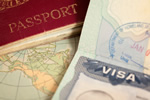Expat New Year resolutions should include a savings plan

Expat New Year resolutions should include a savings plan
Along with losing weight, getting fit and stopping smoking, getting to grips with your finances is one of the hardest New Year resolutions to keep, especially if you’ve relocated to the UAE, Singapore, Tokyo or another capital in the top ten most expensive expat hubs. Earning multiple times your salary in the home country is magic, but spending every last penny on lifestyle and consumables without a thought for your future isn’t such a great idea.
‘Building wealth’ was last year’s buzzword, spoken or written mostly on behalf of those who’re building their own by using a well-honed script to sell financial products to newly-arrived expatriates. However, saving can be as simple as squirreling away a regular monthly amount against emergencies, knowing it’s still your cash and can be used if absolutely necessary. If you’re in a locked-in savings plan, it’ll cost you far more than you’ve paid in during a single year to get your hands on means of payment if an emergency strikes.
Keeping your expenses to a realistic minimum and targeting your monthly savings goal means you can put by a designated amount each month and feel good about it. It’s easy to split out your spends into sectors such as 5 per cent for utilities, 7 per cent for transportation, 20 per cent for housing, 10 per cent for food and another 10 per cent for education, allowing, say, 15 per cent for savings. Once you’ve created your savings plan around your lifestyle needs and emergency savings, it’s easy to monitor.
For many expats, the word ‘budget’ is anathema, but the reality is that having one means you’re in charge of where your money goes rather than wondering where it went. Once you’ve adequate emergency contingency funds under your belt, you could consider taking on an investment, but you’ll need to remember certain rules. First and foremost, never, ever invest in anything you don’t totally understand, no matter how tempting it seems. Wherever expats gather, sharks are found on land as well as in the waters, and it’s your financial future that’s at stake. Educating yourself about investment is the best way forward, and diversifying between the various available options including property ensures your risks are kept to a minimum.
Related Stories:
- Is Kuwaitization the unintended result of the oil price crash? - July 20, 2020
- Expats in Malaysia still banned from overseas travel - July 17, 2020
- HSBC Asia to cut back on internal expat relocations - July 16, 2020
- Tips on integrating for newly-arrived expats - July 15, 2020
Latest News:
- Tips on a trouble-free relocation as an expat overseas - July 20, 2020
- Expats find peace in the covid-19 refuge of Dahab town - July 20, 2020
- Is Kuwaitization the unintended result of the oil price crash? - July 20, 2020
- Expats unhappy abut changes to Korean points-based visa system - July 17, 2020
- Chiang Mai and Bangkok no longer bargain locations for expats - July 17, 2020
- Expats in Malaysia still banned from overseas travel - July 17, 2020
- Vietnam welcomes expats to its safe, affordable lifestyle - July 16, 2020
- Asian tiger economies reach out to expats in Hong Kong - July 16, 2020
- HSBC Asia to cut back on internal expat relocations - July 16, 2020
- Tips on integrating for newly-arrived expats - July 15, 2020


